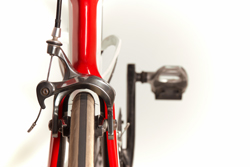Imminent success for the e-bike
Traffic congestion and pollution in European cities are damaging to infrastructure, the population and its heritage. Furthermore they are a disincentive to businesses that are a city's life blood. Most journeys within cities are very short in terms of distance but of course take a disproportionate amount of time. Two-wheeled hybrid electric vehicles would appear to be the answer to these problems and the 'Electric two-wheelers on urban roads' (E-tour) project investigated their commercial viability. During trials in 10 centres throughout Europe, they also gauged level of public acceptability for the bicycle with power. More than 700 e-bikes and 600 e-scooters were put on trial and feedback was collected from the public, local authorities and users. Overall there were no objections against using the e-vehicles. In fact, the local environmental benefits are enough to pave the way to promotion of the many advantages of the bikes. E-tour researchers highlighted obstacles which may hamper the electronic bike's uptake which mainly revolve around the power supply. The price of the battery is unacceptably high, inflating the overall price. Secondly, the design of the bicycle needs to be more attractive to appeal to a wider market. The researchers suggest that all key players can help solve these potential problems. Dealers can provide a competitive price structure, manufacturers can improve battery technology and design and public authorities can introduce incentives for the use of these clean silent vehicles. The e-bike seems to have a future in the market for short urban journeys or on small islands where use of cars is restricted or banned altogether. With a concerted effort on behalf of all interested parties, the e-bike could join the ranks of the greener vehicle in tomorrow's clean cities.



